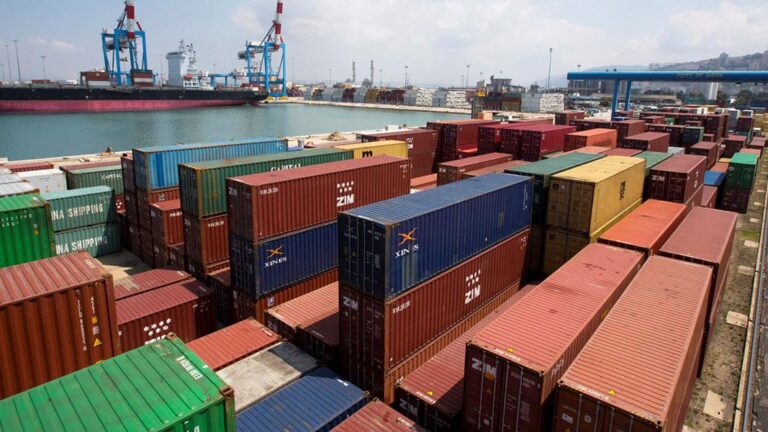International trade is a fundamental pillar for Brazil’s growth and competitiveness in modernizing Brazilian logistics. To maintain our position in this global scenario, it is imperative to align with international practices and regulations.
A strategic tool that has gained prominence in this context is RECOF SPED – Special Customs Regime of Industrial Warehouse under Computerized Control of the Public System of Digital Bookkeeping.
What is RECOF SPED:
RECOF SPED is a special customs regime that simplifies import and export operations for industrial companies, boosting competitiveness in the international market and modernizing Brazilian logistics by promoting our integration into global supply chains.

Benefits of RECOF SPED for Brazilian Logistics:
By adopting RECOF SPED, companies enjoy a series of benefits, including:
- Tax Suspension: Importation of inputs, raw materials, and intermediate products with tax suspension, reducing production costs.
- Procedure Simplification: Reduction of bureaucracy and simplification of customs procedures.
- Operational Flexibility: Greater flexibility to carry out warehousing, industrialization, and processing operations.
- Computerized Control: Integration with SPED provides more effective control of operations, ensuring transparency and security.
- International Competitiveness: Reduction of costs and logistical hurdles, making Brazilian companies more competitive in the global market.
- Possibility of selling 30% of the imported product in the domestic market.
Implementing RECOF SPED: Step by Step
Implementing RECOF SPED requires a careful and well-planned process to ensure compliance with Brazilian customs regulations. Here are some essential steps we use to guide the company through this process:
Step 1: Viability assessment
Before starting the implementation process, it is crucial to conduct a detailed analysis to determine if RECOF SPED is suitable for the company. Consider factors such as the type of import/export operations the company conducts, the volume of goods involved, and the potential benefits and costs associated with the regime.
Step 2: Planning and preparation
Once it is decided that RECOF SPED is suitable, it is time to start planning and preparing for implementation. This may include:
- Appointment of a team responsible for the implementation process.
- Identification and documentation of all processes and procedures related to import/export operations.
- Review and update of existing systems and technologies to ensure compatibility with RECOF SPED requirements.
- Ensuring that your company meets all legal and regulatory requirements to adhere to the regime.
Step 3: Application for authorization
The next step is to apply for authorization to operate under the RECOF SPED regime. This involves submitting a series of documents and information to the Brazilian Federal Revenue Service, including:
- Properly completed authorization application forms.
- Documentary evidence of the company’s tax status and regularity.
- Information about the company’s customs processes and procedures.
- Details about the products that will be imported/exported under the RECOF SPED regime.
Step 4: Operational implementation
With the authorization granted, we begin to operate under the RECOF SPED regime. This may involve:
- Adaptation of operational processes to comply with regime requirements, including integration with the Public Digital Bookkeeping System (SPED).
- Training of the team to ensure that everyone understands and follows the new procedures.
- Implementation of monitoring and control systems to ensure ongoing compliance with regime regulations.
Step 5: Monitoring and review
After implementing RECOF SPED, regular monitoring and review are important to ensure that we are operating in accordance with regime regulations. This may include:
- Internal audits to ensure compliance with regime requirements.
- Ongoing monitoring of import/export operations to identify and correct any issues or irregularities.
- Periodic review of processes and procedures to ensure efficiency and ongoing compliance.
It is important to highlight that implementing RECOF SPED requires careful planning and compliance with specific requirements established by customs authorities. Companies interested in joining this regime should seek the support of specialized professionals and be attentive to current regulations.
Fiorde Group’s SIRIUS Platform:
At Fiorde Group, we rely on the SIRIUS Platform to revolutionize supply chain management. With specific modules for RECOF SPED and DRAWBACK ONLINE control, SIRIUS offers visibility and collaborative functionalities for logistics stakeholders, facilitating adaptation to regulatory changes and promoting operational efficiency.
In an increasingly connected and competitive world, it is essential that Brazilian companies are prepared to seize the opportunities of international trade. RECOF SPED represents an important step forward in modernizing Brazilian logistics, contributing to our global integration and sustainable economic growth.
At Fiorde Group, we are committed to offering innovative and efficient solutions to help our clients adapt to the technological and regulatory advancements of the global market.
Learn more about the Sirius Platform here.
Return to Blog